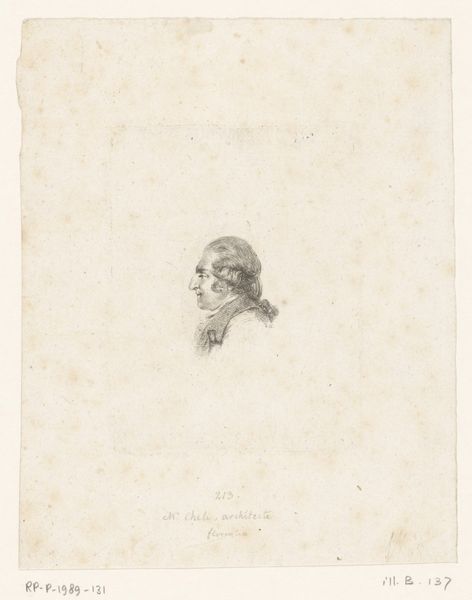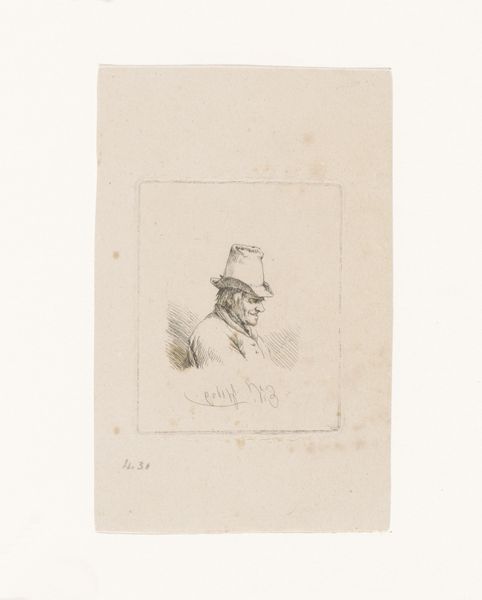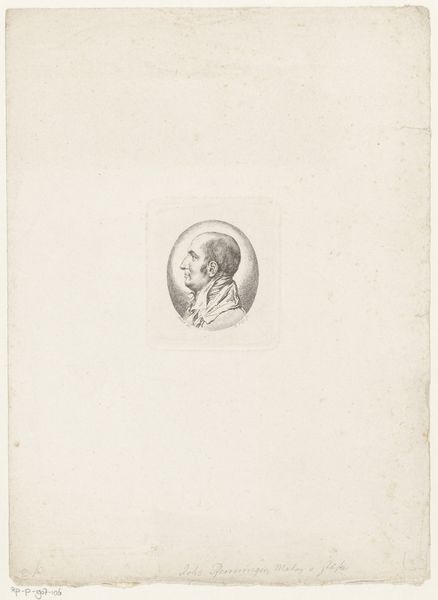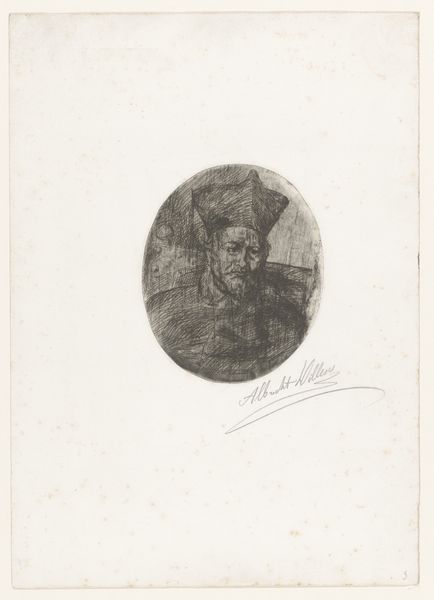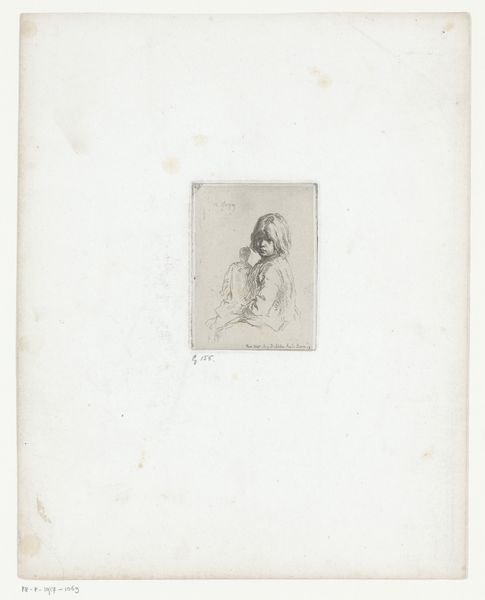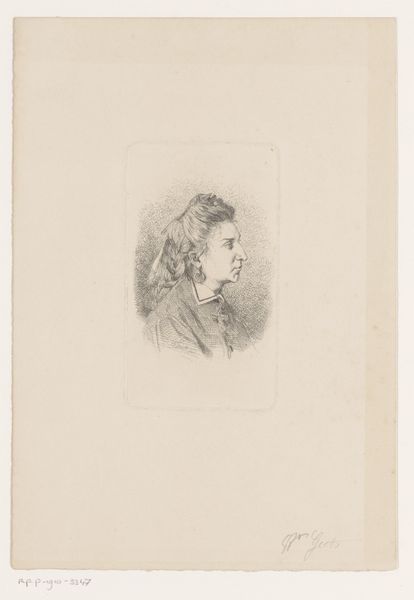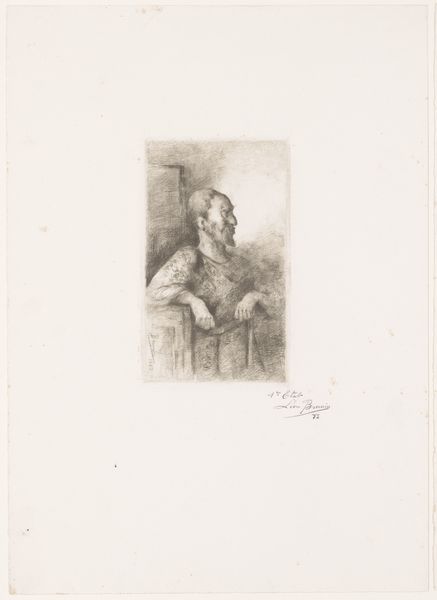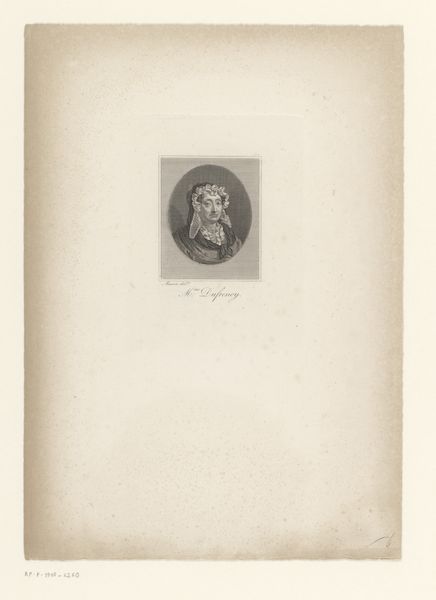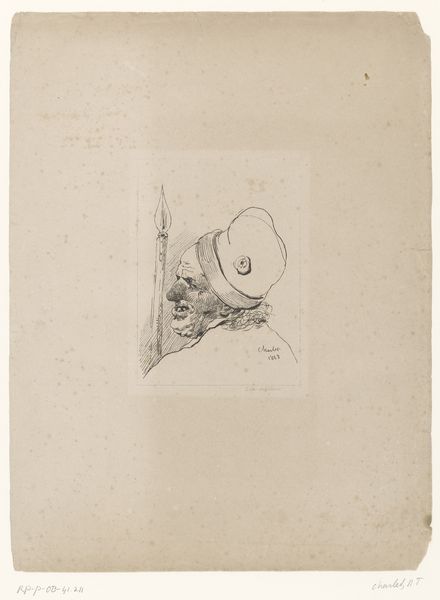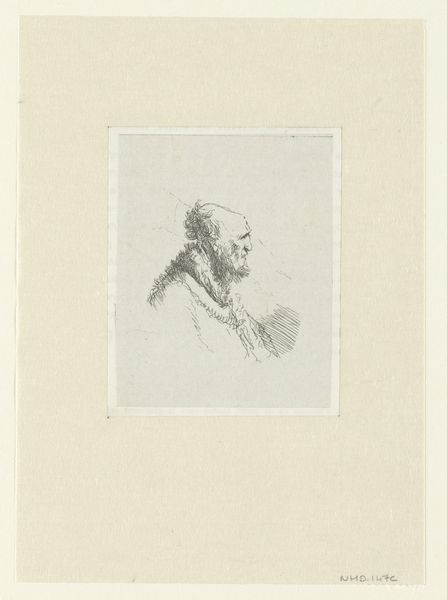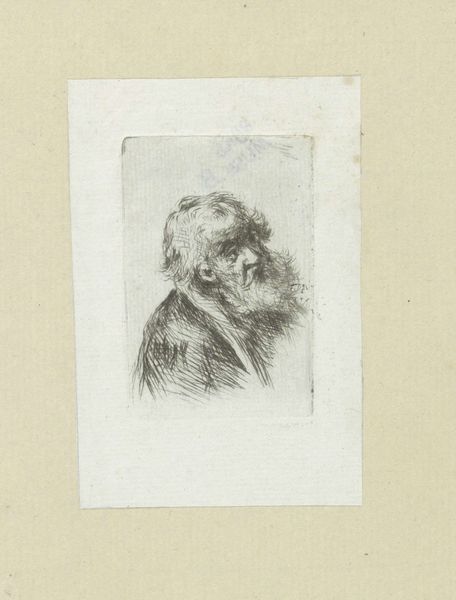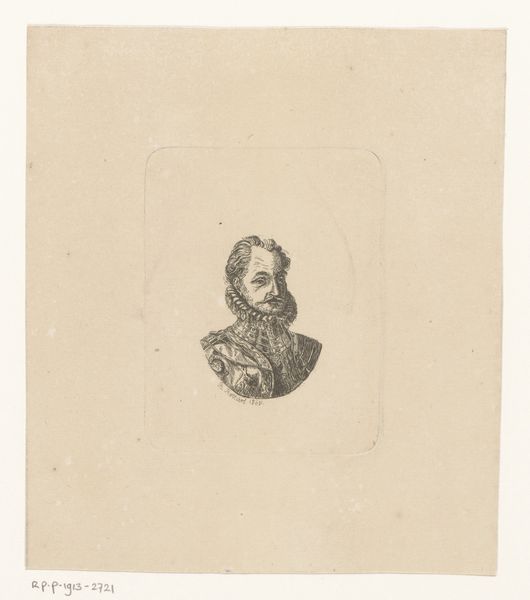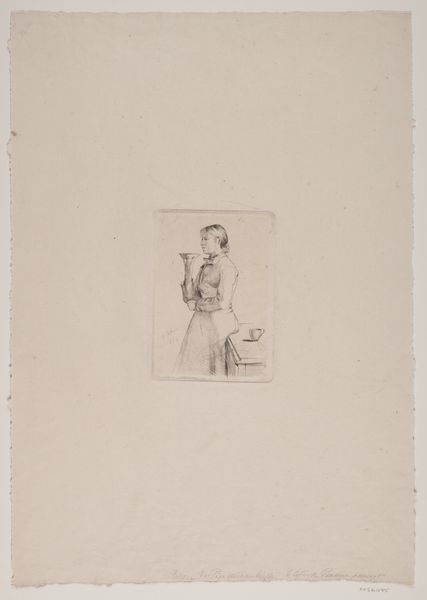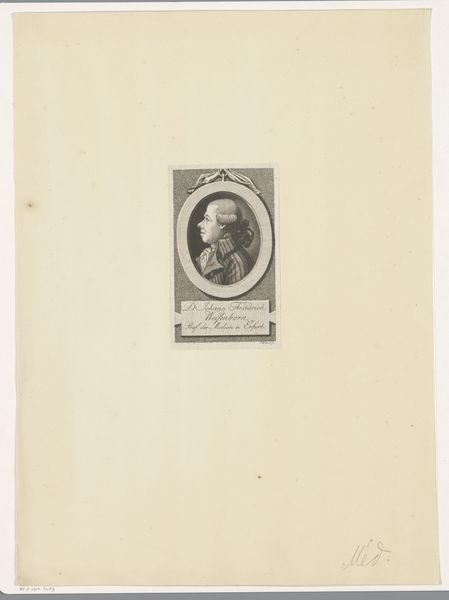
drawing, print, paper, engraving
#
portrait
#
drawing
# print
#
paper
#
romanticism
#
line
#
academic-art
#
engraving
#
realism
Dimensions: height 56 mm, width 43 mm
Copyright: Rijks Museum: Open Domain
Eugène Verboeckhoven created this small portrait print of Joseph Prudhomme using etching, a printmaking technique that democratized image production in the 19th century. In etching, a metal plate is coated with a waxy substance, through which the artist scratches an image. When the plate is dipped in acid, the exposed lines are eaten away, creating grooves that hold ink. The plate is then pressed onto paper, transferring the image. Look closely, and you can see the subtle lines and textures created by the etching process. The etcher's skill lies in controlling the depth and width of the etched lines, which determines the tonal range and detail of the final print. This process allowed for multiple reproductions, making art more accessible, aligning with the burgeoning middle class and expanding consumer culture of the time. Consider how the relative ease and repeatability of etching contrasts with the unique, painstaking labor of painting, and how this influenced art's role in society.
Comments
No comments
Be the first to comment and join the conversation on the ultimate creative platform.
